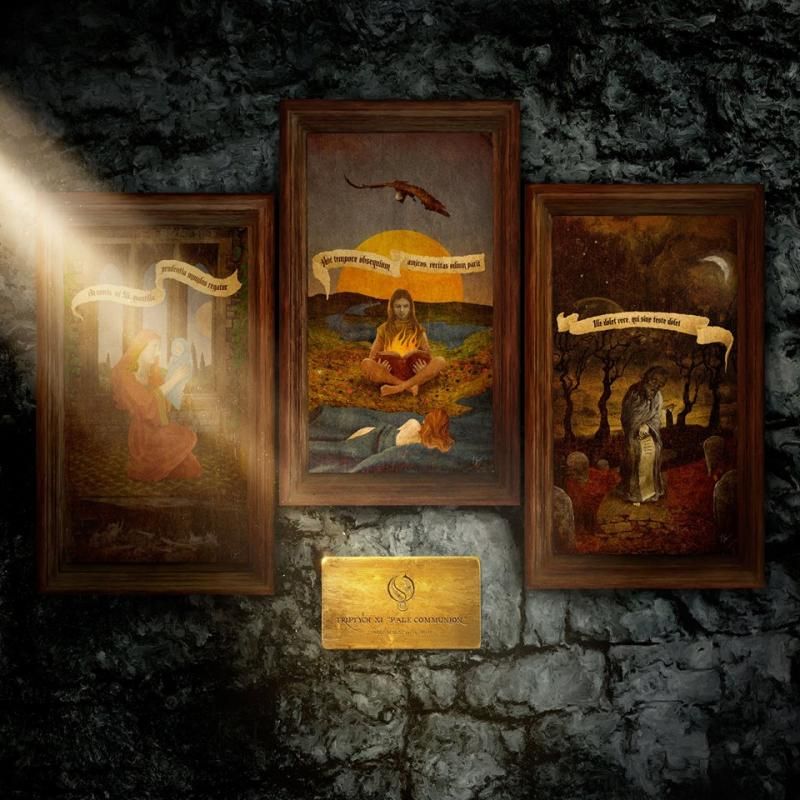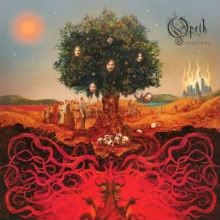
It’ll be no surprise to anyone who’s been reading this blog for a while to see Opeth mentioned here again. They’ve been one of my favourite bands ever since I discovered them, well over a decade ago, and their music has seen me through thick and thin. Although a metal band in their early days, Opeth’s music has very much drifted into the progressive spectrum with recent albums, a shift that has divided old fans but brought them legions of new ones. Am I sometimes a little nostalgic for the old, death metal Opeth? Yes. However, I’ve long been a prog fan too, and ‘Pale Communion’ proves just how perfectly Opeth have been able to embrace the genre.
Although their previous album also had strong progressive leanings, ‘Pale Communion’ is a very different beast. Whereas ‘Heritage’ never quite seemed to find its rhythm, sometimes sounding a bit too laboured, ‘Pale Communion’ is entirely cohesive, working best – as many prog albums do – when listened to from start to finish. And what a start that is! There’s simply no mistaking the opening song, ‘Eternal Rains Will Come’, for anything other than prog rock (in case you missed what has to be a reference to ELP’s ‘Pictures at an Exhibition’ with the cover), and the rest of the album follows suit. There are guitar solos, synths aplenty, and the whole is overlaid with Mikael Åkerfeldt’s soft, ever-mesmerising vocals.
This isn’t just a pastiche of 70s prog rock, though. The whole album certainly leans in that direction (and there are moments that are pure Argent or Camel), but there are so many complex, intriguing hints here at something greater. There are riffs that could easily have come from one of the band’s earlier albums (the start of ‘Elysian Woes’ strongly hints at ‘Damnation’, for example), yet the two styles mesh perfectly together, forming a coherent sound that’s as compelling as it is intricate.
It’s fair to say that I really love this album. It grows on me every time I listen to it, revealing new subtleties and new layers. If you’ve previously been an Opeth fan, I’d say give it a try: it’s different from their earlier work, certainly, but so much of the complexity I’ve always loved in their music is still here. At its core though, ‘Pale Communion’ is both a tribute to 70s progressive rock and a perfect example of how much life there still is in the genre – and how looking to the past for inspiration isn’t always a step backwards.






 I’m aware that I haven’t actually done an ‘album of the month’ post for a while, so this isn’t really a monthly thing. As September comes to an end though, I wanted to talk about an album that I’ve been waiting for for quite some time: Opeth’s ‘Heritage’.
I’m aware that I haven’t actually done an ‘album of the month’ post for a while, so this isn’t really a monthly thing. As September comes to an end though, I wanted to talk about an album that I’ve been waiting for for quite some time: Opeth’s ‘Heritage’.